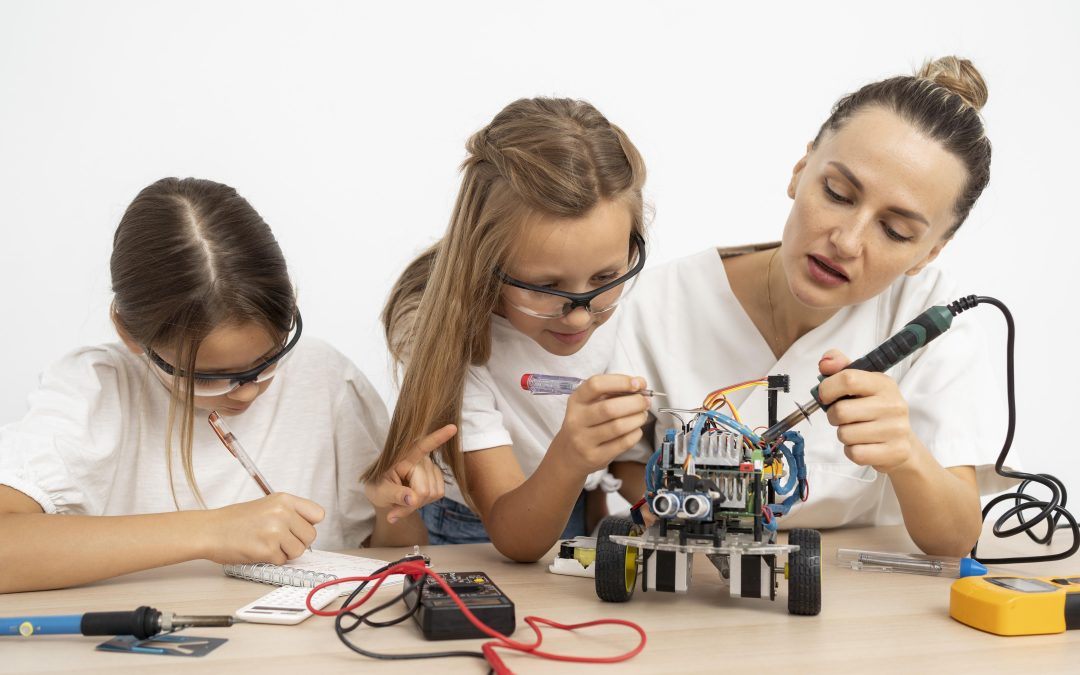The rush for Direct School Admission spots intensifies yearly, with over 4,000 students securing places through this pathway in 2023. While many parents start thinking about DSA only when their children reach Primary 5 or 6, successful applicants often have a different story – one that begins much earlier.

The Early Bird Advantage in Direct School Admission Preparation
“My daughter gained DSA entry into her dream school not because we rushed her in Primary 6 / PSLE, but because we nurtured her love for music since she was five,” shares Mrs. Tan, whose daughter now plays first violin in her secondary school orchestra.
Like many successful DSA stories, the journey begins far earlier than most parents realize. Think of it as planting a garden – you can’t expect flowers to bloom overnight.
During the Primary 1-3 phase, it’s crucial to let your child explore freely. Sarah’s mother discovered her daughter’s artistic talent when she noticed her spending hours sketching during free time. Instead of immediately pushing her into art competitions, she enrolled Sarah in fun weekend art classes where the focus was on enjoyment rather than achievement.
“We tried everything from swimming to coding, but I watched carefully to see what made her eyes light up,” she explains. This organic approach helped Sarah develop a genuine passion for art, which eventually led to her DSA success in visual arts.
The Primary 4-5 period is when you begin shaping these natural interests more deliberately. Take Marcus, who showed early promise in basketball. His parents ensured he joined the school team in Primary 4, but also encouraged him to help coach younger players during recess. This natural progression into leadership roles strengthened his application significantly.
Documentation becomes key during these years. “I wish I’d kept better records from the start,” admits John’s father. “Even simple things like photos of science experiments he did at home would have been valuable for his portfolio.”
The secret isn’t pushing your child into every possible activity but watching for that special spark. When you spot it, fan those flames gently. Keep a simple diary of achievements, take photos of projects, and save those certificates – they’ll tell a compelling story of your child’s journey when time comes.
Remember, the early years should focus on exploration and joy. The strategic development will follow naturally when built on a foundation of genuine interest and passion.
What Successful DSA Candidates Do Differently
Meet Kai, a 13-year-old who secured his spot through robotics. “I never thought about DSA when I started building robots in Primary 2,” he grins. “I just couldn’t stop tinkering with machines.” His mother adds, “We didn’t plan for Direct Admissions initially. His passion led the way, and the achievements followed naturally.”
This pattern repeats across successful applications. Take Emma, who got into her chosen school through her achievements in environmental science. It started with her rescue of a baby bird in Primary 3. This sparked her interest in wildlife conservation, leading her to start an eco-club in school, organize beach cleanups, and eventually develop an award-winning project on reducing plastic waste.
“The difference between successful candidates and others isn’t just about talent,” observes Mr. Lim, an interview panelist with 15 years of experience. “It’s about depth of engagement and authentic impact.”
Consider Joshua, who secured a sports admission not just because of his track medals, but because he volunteered to coach younger students and organized mini-tournaments during recess. “The medals were great,” his PE teacher shares, “but what impressed the panel was how he used his skills to benefit others.”
These students share common threads in their journeys:
- They dive deep into their interests rather than spreading themselves thin
- They create ripple effects in their communities
- They show initiative beyond structured activities
- They demonstrate leadership naturally through their passions
Lin Mei, another successful candidate, turned her love for Chinese calligraphy into a weekly session teaching seniors at a community center. “I didn’t do it for DSA,” she explains. “I just wanted to share something I loved.”
The key takeaway? Successful candidates don’t just collect certificates – they create meaningful impact through their passions. Their achievements tell stories of genuine engagement, leadership, and community contribution. As one principal notes, “We’re not looking for perfect students. We’re looking for authentic ones who will contribute meaningfully to our school community.”
Common Mistakes Parents Make to gain entry to secondary schools
“I’ve seen too many children break down in tears during interviews,” shares Mrs. Lee, a former School Admissions coordinator. “Often, it’s not the child’s inability, but the weight of excessive preparation that causes this.”
The story of Alex is all too common. His parents enrolled him in six different enrichment classes, hoping to maximize his chances. By Primary 5, he was juggling swimming, violin, math olympiad, public speaking, chess, and coding. The result? Burnout and mediocre performance across all areas.
Contrast this with Jenny’s experience. Her parents noticed her natural affinity for gymnastics in Primary 2 but waited until Primary 5 to start serious training. “We thought there was plenty of time,” her mother admits. “By then, we were playing catch-up against children who had years of proper training and competition experience.”
The lesson? Balance and timing are crucial. As one successful DSA parent advises, “Choose one or two areas your child truly loves, and nurture those consistently from young.”
Strategic Planning for Different Talent Areas
Meet three students who successfully navigated different DSA pathways:
For Academic DSA, Rachel’s journey started in Primary 3 with her fascination for science experiments. “Instead of forcing her to join every competition, we helped her develop her interest through home experiments and science fairs,” her father explains. By Primary 6, she had a rich portfolio of science projects, including a school-wide recycling initiative she started.
In Sports DSA, Marcus’s story stands out. His parents noticed his natural agility at age seven and enrolled him in basic gymnastics. “We didn’t push for competitions immediately,” his mother shares. “First, we ensured he mastered the fundamentals.” This patient approach paid off – by Primary 4, his strong foundation made him a natural competitor.
The performing arts pathway saw Sarah develop from a shy pianist into a confident performer. “We recorded her progress from her first recital when she was eight,” her mother recalls. “These recordings became precious portfolio pieces, showing her growth not just in skill but in stage presence.”
Each pathway requires different preparation, but all share one common thread: early recognition and consistent, purposeful development of talent.
The Hidden Advantages: What Sets Apart Successful Candidates
“During interviews, we often spot successful candidates before they even speak,” reveals Mr. Tan, a School Admissions panel member. “There’s a certain confidence that comes from years of genuine engagement in their field.”
Take David, who secured a sports DSA. Beyond his swimming achievements, what impressed the panel was his ability to articulate how he overcame setbacks. His reflection journal, maintained since Primary 4, showed deep self-awareness and emotional maturity.
His portfolio stood out not just for medals won, but for the journey documented through training videos, competition analyses, and testimonials from coaches. “We could see his progression from a nervous beginner to a confident team captain,” the selection panel noted.
As his mother shares, “The real advantage wasn’t just in the achievements, but in the life skills he developed along the way.”
Practical Tips for Long-Term Success
Creating Opportunities
- Join relevant CCAs early
- Seek leadership roles naturally
- Participate in school events
- Build relationships with teachers/coaches
Documentation Strategies
- Keep a detailed achievement log
- Maintain photo/video evidence
- Collect testimonials
- Track progress systematically
Building Networks
- Connect with seniors who succeeded
- Join relevant communities
- Attend school open houses early
- Build relationships with potential schools
Balancing DSA Preparation with Overall Development
Success comes from integration, not isolation. Smart scheduling ensures homework gets done before training, and family dinners remain sacred. As one parent notes, “A child who’s stressed and unhappy won’t perform well, no matter how many hours they practice.”
Academic Balance
- Maintain strong academic foundations
- Use DSA preparation to enhance learning
- Create synergies between interests and studies
- Avoid overwhelming schedules
Mental Well-being
- Regular check-ins with children
- Maintain healthy family time
- Ensure adequate rest and recreation
- Focus on process over outcomes
Looking Beyond DSA programme
“It shouldn’t be viewed as the only path to success,” emphasizes a teacher. She shares the story of Mei Ling, who didn’t secure a spot but excelled through the PSLE (Primary School Leaving Examination) route, eventually becoming head prefect.
“What matters most are the life skills developed during the journey,” adds Mr. Chen, whose son’s application wasn’t successful. “The preparation process taught him resilience, time management, and goal-setting. These skills proved invaluable in secondary school and beyond.”
Smart parents prepare multiple pathways. The Tan family, while supporting their daughter’s sports admissions bid, ensured she maintained strong academics. “Having alternatives reduced pressure and actually improved her DSA performance,” Mrs. Tan reflects.
The most valuable outcomes often transcend school admission. As one successful student notes, “Whether I got in through DSA or not, the confidence, discipline, and independence I developed during the preparation process have shaped who I am today.”
Conclusion
Remember, successful applications aren’t built overnight. They’re the result of years of genuine interest, consistent effort, and strategic development. The key is to start early, stay focused, and maintain authenticity in your child’s journey.
Parents should view DSA not just as an admission pathway but as an opportunity for their children to develop their talents and passions meaningfully. The most successful applications often come from students who genuinely love what they do, supported by parents who guide rather than push.
Start early, stay consistent, and keep the bigger picture in mind. After all, the goal isn’t just to secure a spot – it’s to help your child develop into a well-rounded individual who excels in their areas of interest.
FAQs
What exactly is Direct School Admission and how does it differ from regular admission?
Direct School Admission (DSA-Sec) is an alternative pathway that allows students to gain entry to their dream secondary schools based on their talents and achievements, before taking their PSLE. Unlike regular admission which relies solely on PSLE scores, DSA considers a student’s specific talents in areas like sports, arts, or academic strengths.
When should parents start preparing their child for DSA application?
The best time to start is as early as Primary 1-3, not for specific DSA preparation but to explore and develop your child’s natural talents. Formal Direct School Admissions preparation typically begins in Primary 4, giving sufficient time to build a strong portfolio and track record in chosen areas.
How many schools can my child apply through DSA in 2024?
Students can apply to up to three secondary schools via DSA. However, they can only accept one DSA offer. It’s crucial to carefully shortlist schools based on your child’s strengths and the school’s specific talent areas.
What are the key dates for DSA-Sec process that parents should note?
The application period typically runs from May to July. School-based assessments and interviews occur between July and August. Offers are usually made in September, before the PSLE results are released.
How can I increase my chances of getting a DSA offer from my preferred school?
Focus on developing depth rather than breadth in your chosen area. Maintain consistent participation and achievement records, build leadership experience, and gather evidence of impact in your talent area. Also, prepare thoroughly for interviews and ensure your portfolio is well-documented.
Does my child need to take PSLE if they secure a place via DSA?
Yes, students who secure a DSA place must still take the PSLE. However, they don’t need to meet the school’s regular PSLE cut-off point. They only need to qualify for the Express/Normal (Academic)/Normal (Technical) stream as stated in their DSA offer.
What evidence do schools require for talent areas in the DSA application?
Schools often require certificates, competition results, performance records, testimonials from teachers/coaches, and evidence of leadership roles. For sports and performing arts, video recordings of performances or competitions are valuable.
How important are leadership positions in securing a DSA spot?
Leadership positions can significantly strengthen an application as they demonstrate responsibility, initiative, and soft skills. However, they should come naturally through genuine involvement rather than being pursued solely for DSA.
Can my child apply for DSA if they excel in sports but have average academic results?
Yes, but remember that a chosen school will likely require evidence of reasonable academic performance to ensure the student can cope with their curriculum. Different schools have varying academic requirements for DSA students.
What happens during a typical DSA interview, and how should we prepare?
Interviews usually assess passion, knowledge, and commitment to the talent area. Prepare by practicing common DSA interview questions, staying updated about your field, and being ready to discuss your experiences and achievements naturally.
Should we check the school’s website before applying, and what information should we look for?
Absolutely! Review the school’s DSA talent areas, selection criteria, and assessment components. Look for specific requirements, past year achievements in your area of interest, and CCA opportunities. Many schools also list important dates and documentation requirements that are crucial for applications.
How do schools in Singapore evaluate DSA applicants differently?
Each school has unique evaluation criteria. Some focus heavily on competition achievements, while others value leadership and character development. Top schools often look for students who can contribute significantly to their niche programs, while others might emphasize all-round development.
If my child didn’t specifically prepare for DSA early, can they still try for one school?
Yes, if they have natural talent and genuine achievements in any area. Many successful DSA applicants didn’t specifically prepare for DSA but excelled in their areas of interest naturally. Authentic passion often shines through during interviews.
What role do Primary 4 and 5 end-of-year examination results play in DSA applications?
These results serve as indicators of academic consistency and ability to cope with secondary school curriculum. While they’re not the sole determining factor, schools often use them to ensure students can manage academic demands alongside their talent areas.
How can parents help their child balance DSA preparation with routine PSLE preparations?
Create a structured schedule that allocates time for both. Use weekends for talent development and weekdays for academics. Remember that DSA shouldn’t compromise PSLE preparation as it serves as a backup plan.
What should we do if we need to transfer to another school after accepting a DSA offer?
Transfers are generally not allowed after accepting a DSA offer unless there are valid reasons like medical conditions. It’s crucial to make an informed decision before accepting any offer and understand it’s a commitment.
Is it better to focus on academic achievements or other talents for DSA?
The best approach is to align with your child’s genuine strengths. Academic DSA is highly competitive and requires exceptional results. Non-academic talents often offer unique opportunities, especially if your child shows special aptitude in these areas.
How many different secondary schools should we shortlist for DSA?
While you can apply to three schools, research thoroughly and shortlist based on:
- Alignment with your child’s talents
- School culture and values
- Location and programs offered
- Realistic assessment of your child’s chances
What alternatives should we keep in mind if DSA application is unsuccessful?
Always prepare for regular PSLE admission as a backup. Research other schools that match your child’s interests and abilities. Consider schools with strong programs in your child’s talent areas even if they’re not your top choice.
Can a child from a neighbourhood top class compete effectively for DSA spots in top schools?
Yes! DSA focuses on specific talents rather than school background. Many successful DSA applicants come from neighbourhood schools. What matters is the child’s ability, achievements, and potential in their chosen area, not their primary school.
Remember: Success in DSA isn’t just about getting into a preferred school – it’s about finding the right fit where your child can thrive and develop their talents further.










